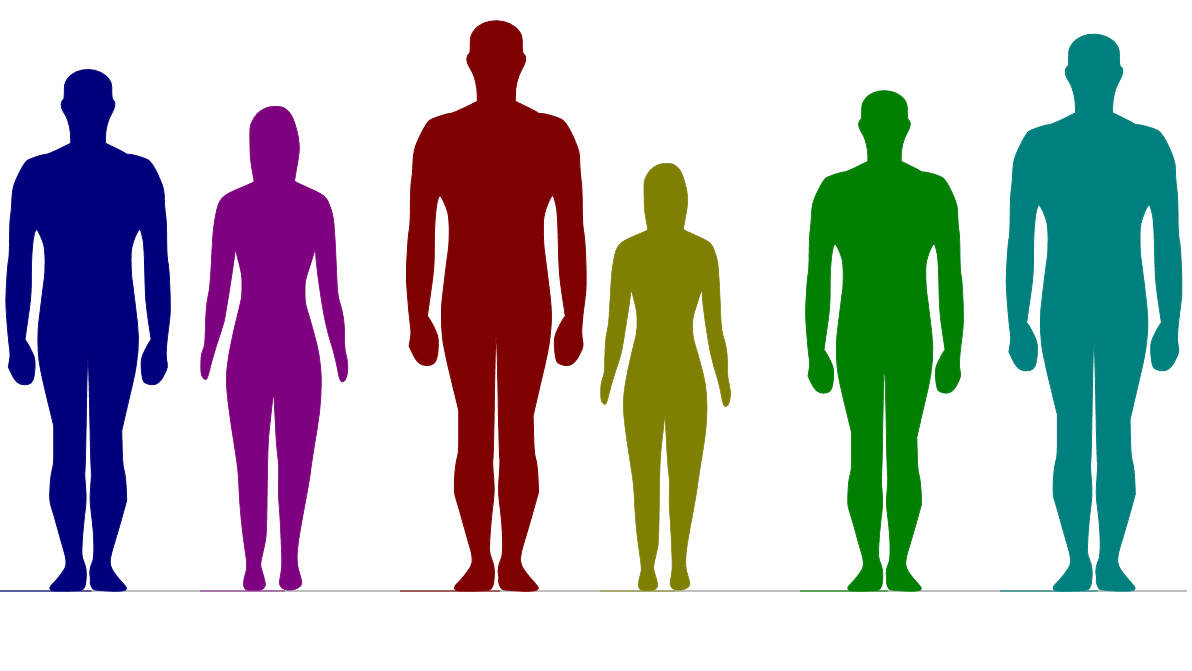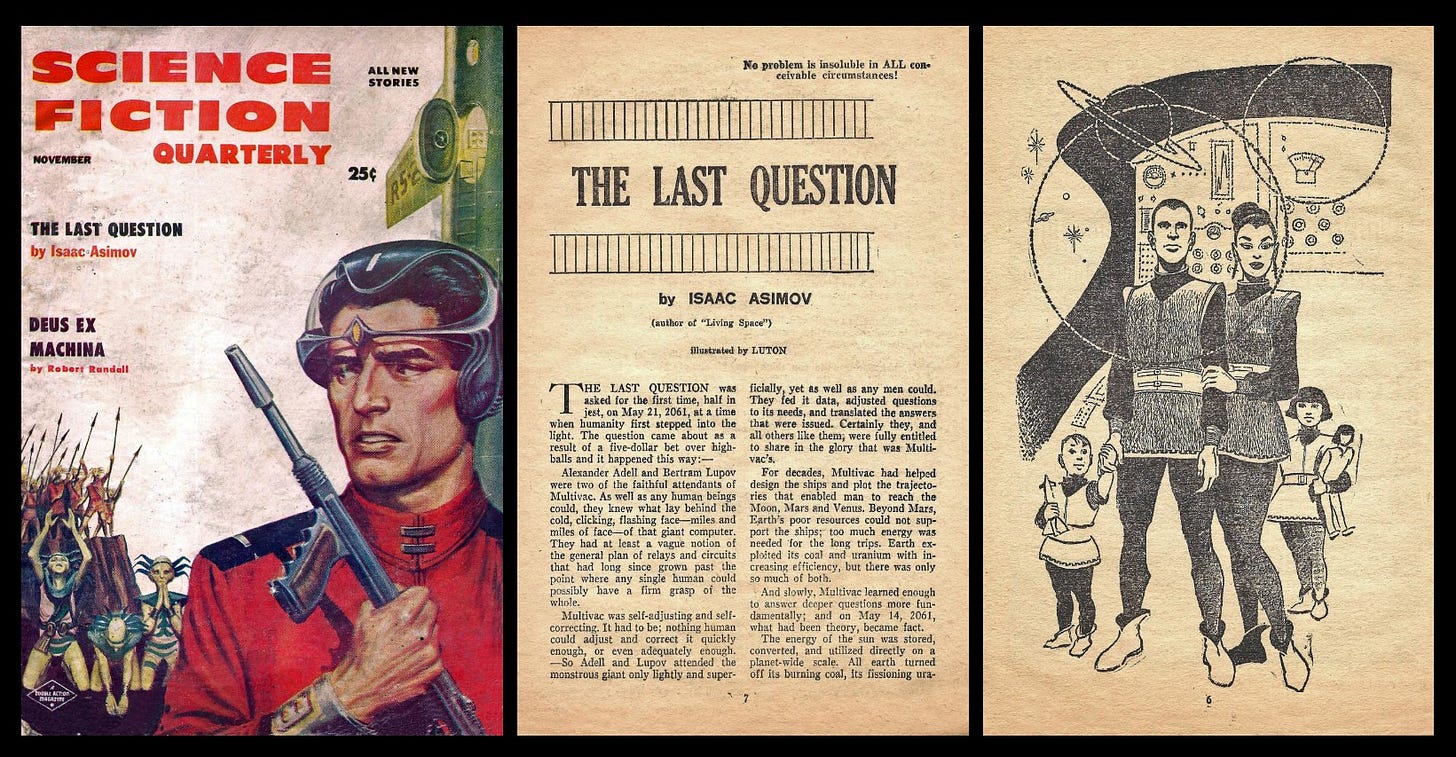You Already Found Yourself
You just don't like what you found very much.

In my feed today, I came across this note. The subject is about “finding yourself.”
The general theme of this note and many of the replies is one of, “You shouldn't expect to find yourself that early.” Well, I've thought about it, and I think I heavily disagree with this. I think that the person who puts themself on a journey of “finding themself” almost always already has. They just don't like what they've found very much, such that they undertake journeys of self-discovery as a way of denying this.
Comparisons Reveal Us to Ourself
We are born knowing only ourselves. As we grow up, we begin to observe the world around us, and this gives us the language to contrast and compare the world around us with ourselves, to begin to understand ourselves. We experience our context revealing itself to us with every year that passes. By the time we are teens, we already have a pretty good idea of who we are.
“Charlie is an amazing natural athlete, whereas I am not so much.”
“Betsy is much more beautiful than I am.”
“I am really funny; all of my friends on the bus are constantly laughing at my jokes.”
See the image below.
“I am Blue Man; I am taller than Pink Girl but shorter than Red and Teal Man.”

Built Through Comparison
Growing up and experiencing life bathes us in analogy, simile, and metaphor. We can't help but use comparison in order to understand ourselves. Other people are used by the growing child as the key to building an internal map of himself. “I have a penis like Daddy. Me boy. Not like Mommy. Mommy woman.” Although these days, this gets quite a bit more complicated in coastal bourgeois cities.
I propose that the “find yourself” crowd isn't confused about who they are at all. Instead, I think that they are unhappy with what they have already found out long ago. As such, they take to a shaman, go on an adventure, or sometimes knowingly take an incompatible lover in order to hide from what they already know.
They set out on quests in search of a new truth in lieu of reckoning with the truth they very much already know. It's sort of like asking Grok to estimate your IQ and then, being unhappy with the output, you ask it to try again and again until you get the answer you want to hear. (Yes, you can ask Grok to do that, and it's surprisingly accurate, assuming you've used it enough. Be careful; you might not like what he tells you.)
Hiding
These people tell themselves a story that they haven't come to fully understand themselves and that their true nature isn't already totally revealed to them. And the rapacious “find yourself” industry is waiting with wide-open arms, more than willing to say to them, “Let's figure out who you really are.”
This is a message that people who want to be something different than what they already are love to hear. Poor people love to hear about how to make money; likewise, people unhappy with who they already know themselves to be love to hear, “Maybe you just don't know who you are.”
You Already Know
But the truth is, unless you're seven years old and reading this (whoa, dude, cool), you very likely already know yourself extremely well. If you're 30, you found yourself a long time ago. The “find yourself” mission was undertaken from the moment you first made a friend, played a sport, or had a conversation. And, whether you like it or not, you already know yourself.

This is not a situation of “There is as yet insufficient data for a meaningful answer.” Sorry, dude. You already have everything that you need to make an adequate analysis. Think about it: you have a pretty good idea of who your friends and family members are. Why should you believe that you somehow don't know yourself even better? After all, you have access to much more of yourself than you do of others.
Your goal isn't to find yourself; it's to accept yourself. Oftentimes, this sucks since, depending on the situation, it can be pretty painful. After all, we frequently want that which we do not possess. It sucks even more when we are talking about wanting to be what we are not. How about an example?
Academia Contains Few Intellectuals
You see this in the humanities quite frequently. Most academics are, to my eye, not intellectuals at all, at least not these days. But somewhere along the way, they got a wire crossed. Maybe they were a good test-taker and received praise from teachers and parents for this. Or maybe they worshipped a grandfather who was an academic and a bona fide intellectual. For whatever reason, this becomes their goal; they want to be an intellectual; they deeply yearn to be seen as one.
But, for whatever reason, they're just not. Maybe they're not deep thinkers, or maybe they don't really have the ability to think creatively. Perhaps they're too ideological, too literal, or not good at being curious, whatever. But they have the raw intelligence and the ability to complete the tasks required to enter academia. And they have the drive to become what they want to become.
These are all good things on their own, I suppose. I'm not going to challenge the notion that hard work, ambition, etc., are good things (not in this article, at least). But most academics, particularly in the humanities, just don't hold the intellectual’s pose very naturally, if at all. And so, they are pouring energy into an unbecoming of sorts. They are rejecting their nature. And this, my friends, eventually makes for an unhappy and unfulfilling life.
And when you get academies full of non-intellectuals, they start to do really weird things, like stuff Marxism and intersectionality down the throats of young people who thought they were just there to study poetry or learn to write essays.

This is why the (correct) public consensus is that the professors are mentally ill communists full of shit. Because, in many cases, they are. The academy is full of people who make themselves read esoteric Iliad translations when, deep down, they just want to sip tea, read airport books (Gladwell, etc.), and be seen as the kind of person who smokes a pipe.
If you could take your average humanities professor and put them in a Macy's window, LARPing as an intellectual for eight hours a day, most of them would be much happier than they are now, doing whatever it is many of them do all day. Even better, they wouldn't be polluting the lake of civilization's collective knowledge, pulling us further and further away from the truth.
The Hive
You get striver-hives like Harvard that are full of people who earned the credential but possess no natural inclination for genuine intellectual pursuit. And then, they get irritated when they encounter the genuine article (worse if he has no credential), experience deep feelings of resentment and inadequacy, and lash out at the world in weird ways, as mentioned earlier.
They want to be seen reading the Iliad, but deep in their heart, it's just not really who they are. There are too many online examples showing exactly this type of person to count. It only takes one or two readings of a person's thoughts to see if they are LARPing or not. Consider this made-up example:
Karen B. Carrington (Professor of English Lit at Harvard since 1997)
“I think that the 51% of my countrymen who voted against my preferred candidate are evil, dumb, and should maybe even be sent to re-education camps.”
Wow, I can't wait for my daughter to learn about the nuances of Chaucer from this person!
Back to finding yourself, the actual subject of this essay. These people are driven by their desire for prestige and the chance of becoming what they want to be. They are not driven by intellectual exploration for its own sake. They are academics by title, but they are not intellectuals by birth.
You see it everywhere now. And it's a big part of why the universities are ideologically captured and fundamentally broken. They are filled to the brim with people wearing the skin-suit of the professor, but possessing none of his characteristics except for a very good understanding of MLA citation standards.
Striving vs. Striver
Unless you've suffered an unusual brain injury, it is highly unlikely that you need to “find yourself” after your teenage years. It sounds trite, and I hate to even use the phrase, but really, you just need to accept yourself. If you're having an “identity crisis,” I bet it's just that you found yourself a long time ago, didn't like what you found, and still haven't come to terms with it. Worse, you might be spending your entire life LARPing, as in the case of many humanities professors today.
In life, striving for things can often be a good thing. But striving to be someone you are not is not a good thing. This is why the verb (to strive) has positive connotations, while the noun (striver) generally has negative connotations.
If you find that you have become exactly what you wanted most to become, it may be wise to check in with yourself and make certain that you are, indeed, still yourself at all.
You may find that who you desire to be and who you actually are are often very different things. Being what others expect of us is a mistake. Attempting to be what we expect of ourselves is often torture, especially when it comes at the cost of who we really are.
Thanks for reading.
